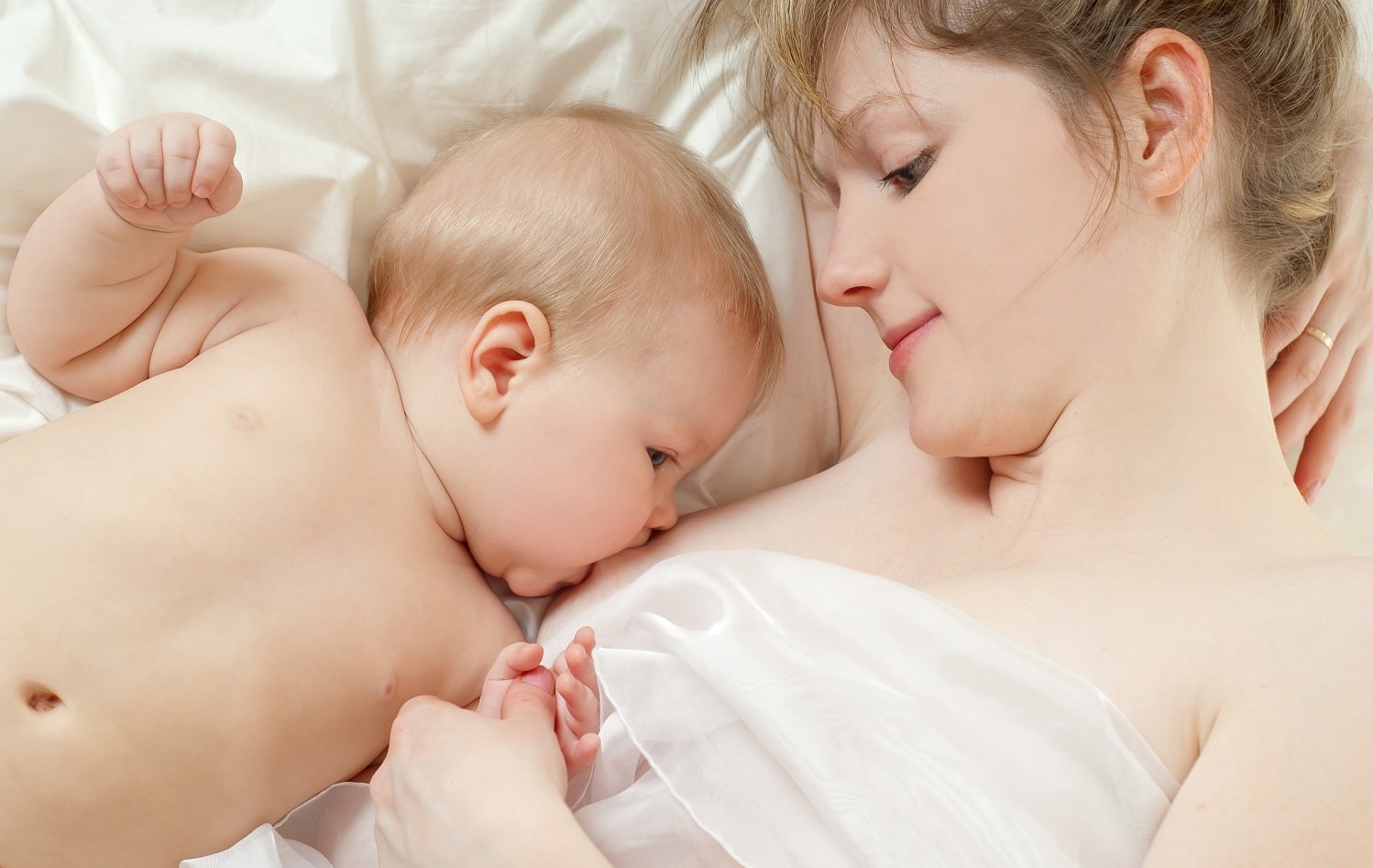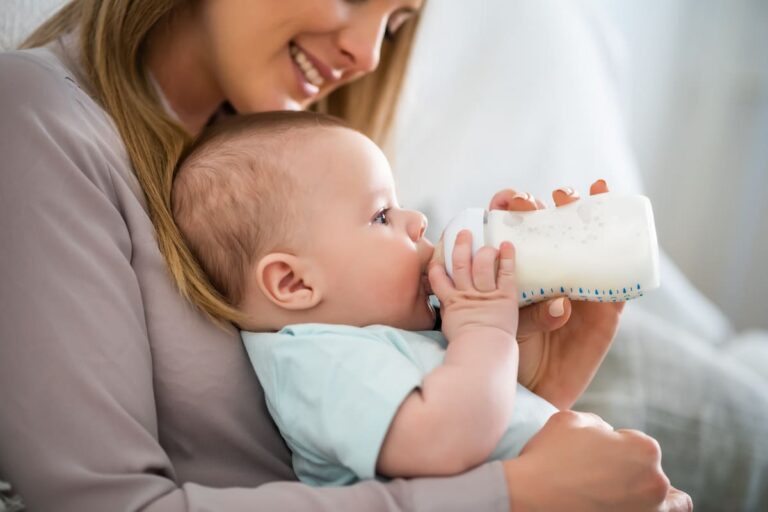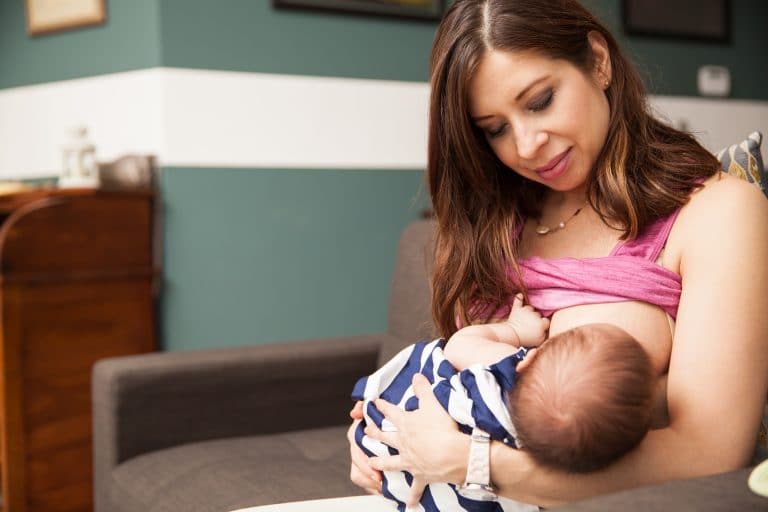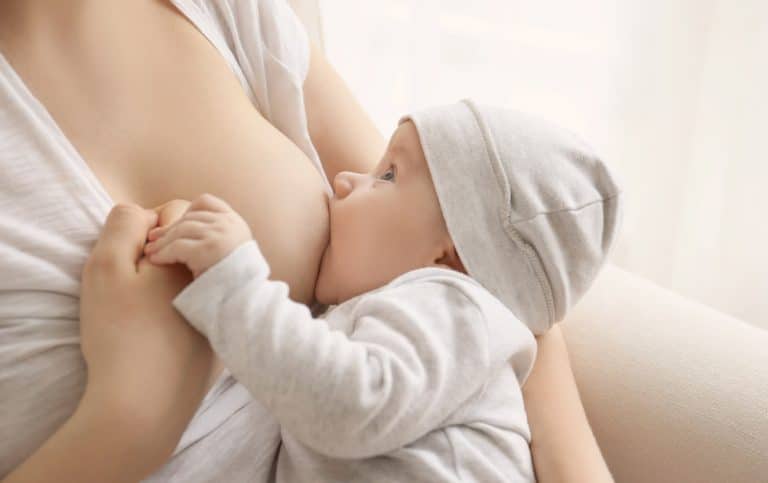The amount of water that a person should drink varies from individual to individual. But what about breastfeeding mothers? How much water do they need to drink while breastfeeding? It’s important to know how much water you should drink while breastfeeding because dehydration can lead to a low milk supply.
If you’re not drinking enough fluid or if your urine is dark yellow in color. Then this could be an indication that you need to increase the number of fluids that you are consuming. Breastfeeding moms need about six 8-ounce cups of fluid a day. But the exact amount will vary based on your weight, activity level, and other factors. In this blog, you will get some helpful tips that can ensure you’re getting the fluids you need every day.
In This Article
How much water should a breastfeeding mom drink?
Water is one of several sources of fluid for breastfeeding moms. Mom’s stores of fat and protein will also contribute to breast milk. So water intake alone usually won’t be enough to meet her fluid needs. Breast milk itself is about 87% water that’s why mom should drink extra fluids. In addition to nursing does increase the amount of water in breast milk.
The basic recommendation for all healthy women is to aim for about 2.8 liters of drinking water each day. This is the amount that will allow mom to produce about one quart of breast milk per day. It’s important to note that fluid intake also comes from other beverages, such as soup and juice. A mom who is breastfeeding extra fluids should be her goal. Since it will help keep their milk supply where they want it and the number of fluids in breast milk will increase slightly to make up for what they drank.
Therefore, if a mom drinks excess water, then there is an increased risk of having a low milk supply. As the excess water has to be excreted from the mom’s body. Not enough milk can lead to dehydration. Which leads to a drop in blood pressure and a decrease in milk ejection reflex. A breastfeeding mom should drinking water according to her thirst cues. Instead of simply drinking a set number of glasses of water per day.
How hydration affects baby milk supply?
A breastfeeding mom should drink enough fluids for her body and milk supply needs, but not more than that. While stay hydrated is important during pregnancy and lactation. It is important that the fluid volume does not affect breast milk production. And any negative effects like urinary tract infections, kidney stones, or dehydration.
Breastmilk production by the human body is very complicated. It has been shown that hydration can affect its composition and concentration. The results of this study suggest that mothers should be advised to drink at least 2 liters of fluid daily. For optimal breast milk volume, regardless of breastfeeding frequency or type of feeding.
Breast milk production is an extremely complex substance that contains a blend of nutrients and other substances that cannot be replicated in formula. In fact, it has been postulated by some researchers that breast milk isn’t just food for the infant. But also a substance secreted by the mammary gland with many functions outside of feeding itself. In hot weather, if pregnant women stay hydrated then it can help to improve their skin health.
However, one of these functions is to keep the baby hydrated, by providing it with water. It has been shown that breastfed babies are less likely to become dehydrated than their formula-fed counterparts. How much water should I drink while breastfeeding? Not only that but breast milk itself is about 87% water. Meaning that breastfeeding stimulates the production of fluids in the mom’s body. Which then makes its way into her milk for the baby.
What drink should a mom avoid?
If you’re breastfeeding, you should only drink water and only when you feel thirsty. You should also avoid herbal teas for the first couple of weeks after delivery. Mother’s milk tea contains high levels of estrogen that can affect the hormone receptors in a newborn baby’s body. In fact, caffeinated drinks consumption can reduce breast milk secretion by up to 50%. So, it’s also best to stop drinking coffee and soft drinks.
Furthermore, some studies suggest that if a mother is malnourished. Their child is more likely to become addicted to caffeine after birth through breastfeeding. Because the child needs the increased energy from ingesting caffeine in order to survive. The truth is that caffeine can suppress your immune response. And making you more vulnerable to infection, illness, and even cancer. Caffeine has never been good for anyone’s long-term health or well-being. Especially if it interrupts regular sleep patterns because then cortisol levels are all over the place.
As we known Alcohol can affect an unborn baby in many ways that are not fully understood. And for breastfeeding moms, it can also adversely affect their breastfeeding relationship with their infant. It is crucial to understand that when drinking during pregnancy or while breastfeeding. No amount of time after gestation or around childbirth is safe for your baby.
Tips to increase intake of water?
Here you will find some useful tips to increase your water intake while breastfeeding, and they are:
- Keep a water bottle with you. Take small sips of water from a water bottle frequently throughout the day, instead of large glasses at one time, when you need to drink.
- Feeling thirsty means you are already dehydrated. The best choice is water, but if you do not like the taste of water, try adding a sugar intake like lemon or lime juice to it.
- Drink a glass of water before eating. It will help you feel more full and eat less food.
- From a bit of professional medical advice slightly dehydrated is frequently depends on body weight, age, or other factors. So, consuming enough water can help you maintain the electrolyte balance as well as produce more milk.
- Keep a water-based fruit in the bowl of your sink, or anywhere you will see it often to encourage your mind that drinking more water is healthy. Apple is the best because they keep staying hydrated but also has positive health benefits.
- Always have a container of drinking water at your desk or workstation so you can refill your water bottle throughout the day.
- Choose clear liquids when you are sick, so you have fewer bowel movement problems.
- If you are experiencing frequent urination, feeling dizzy upon standing up, muscle cramps, or bloating then you need to drink enough water to feel energized.
Although we suggest you do not wait for feeling thirsty. If it took 8 glasses of water to quench your thirst, then your intake will be sufficient when you are drinking at least 6 glasses of water per day. However, if after drinking 6 glasses of water there is still half a glass of water left in the glass, you may need to increase your intake. Drink water according to body weight, as the recommended amount of fluid intake varies with age and body size.
The Conclusion!!
The World Health Organization recommends consuming 2.8 liters of water per day while breastfeeding, which is the equivalent of 10 glasses. It is important to drink enough water during breastfeeding, but not too much. Breast milk production varies depending on the mother’s hydration level and other factors. The best way to ensure that you are drinking enough fluids is by listening for your baby’s hunger cues; breastfed babies will typically feed more often when they need food.
However, you can also use thirst as a guide to determine how much liquid your body needs each day. If it’s difficult for you to drink that much fluid every day or if you are concerned about dehydration during this time period, talk with your doctor and see what they recommend. We hope the above information will help you to intake high water content while breastfeeding, respectively.











